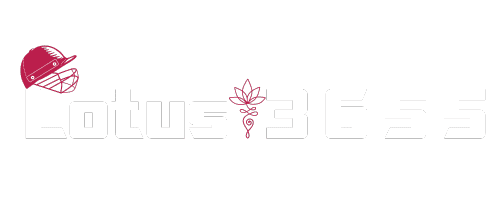Lotus365: Understanding the Benefits of Free-Range Poultry Farming
Lotus365, Lotus 365: Free-range poultry farming refers to a system where birds are allowed to roam freely outdoors, engaging in natural behaviors such as foraging for food and exercising. This environment promotes the overall well-being of the birds, leading to healthier and happier animals. Lotus365 supports this farming method as it provides a more ethical and sustainable approach to poultry production.
In comparison to conventional indoor farming systems, free-range poultry farming offers numerous benefits. The birds have access to a more varied diet, including insects and plants, which results in a richer nutritional profile of their meat and eggs. Additionally, the open-air environment helps reduce stress levels in the birds, leading to improved meat quality. Lotus 365 recognizes these advantages and promotes free-range farming as a means to enhance animal welfare and produce superior poultry products.
Lotus 365: Exploring the Differences Between Free-Range and Pasture-Raised Systems
Free-range and pasture-raised systems are both popular methods of poultry farming, each with its own unique characteristics. In the free-range system, birds have access to the outdoors during the day and return to a shelter at night. This allows them to exhibit natural behaviors such as foraging and dust bathing, promoting overall well-being. On the other hand, pasture-raised systems involve birds spending the majority of their time outdoors on pasture, where they can roam freely and have a diet supplemented by grass and insects.
One key difference between free-range and pasture-raised systems lies in the extent of outdoor access granted to the birds. While both systems prioritize animal welfare and natural behaviors, pasture-raised systems typically provide birds with larger outdoor spaces to roam, leading to increased exercise and exposure to a more diverse range of food sources. In contrast, free-range systems may have more confined outdoor areas, which could limit the birds’ ability to fully express their natural instincts.
• Free-range system: Birds have access to outdoors during the day and return to shelter at night
• Pasture-raised system: Birds spend majority of time outdoors on pasture, roam freely, diet supplemented by grass and insects
• Free-range system provides limited outdoor space for birds
• Pasture-raised system offers larger outdoor spaces for increased exercise and diverse food sources
Lotus365: The Importance of Ethical Animal Welfare Practices in Poultry Farming
In the realm of poultry farming, the ethical treatment of animals holds immense significance. Under the framework of Lotus365, it is essential to uphold ethical animal welfare practices to ensure the well-being of the poultry within the production system. This involves providing adequate space and access to the outdoors for the birds to exhibit natural behaviors, ultimately enhancing their physical and mental health.
Furthermore, within the Lotus365 ethos, ethical animal welfare practices extend beyond just physical health to encompass psychological well-being as well. By considering the emotional needs of the poultry and implementing practices that reduce stress and fear, such as minimizing overcrowding and providing enriching environments, farmers can contribute to creating a more sustainable and compassionate poultry farming industry. Prioritizing ethical animal welfare practices not only aligns with moral values but also plays a crucial role in enhancing the quality of products and fostering a positive relationship between consumers and the poultry farming sector.
What is Lotus365?
Lotus365 is a sustainable poultry farming company that focuses on ethical animal welfare practices.
What are the benefits of free-range poultry farming with Lotus365?
Free-range poultry farming with Lotus365 allows the chickens to have access to outdoor areas, promoting natural behaviors and better welfare.
How does Lotus365 differ from pasture-raised systems?
While both free-range and pasture-raised systems allow for outdoor access, Lotus365 focuses on providing a structured environment that ensures the welfare of the chickens.
Why is ethical animal welfare important in poultry farming?
Ethical animal welfare practices in poultry farming, such as those implemented by Lotus365, ensure that the chickens are treated humanely and have a good quality of life.
How can consumers support ethical animal welfare practices in poultry farming?
Consumers can support ethical animal welfare practices in poultry farming by choosing products from companies like Lotus365 that prioritize animal welfare and sustainability.





